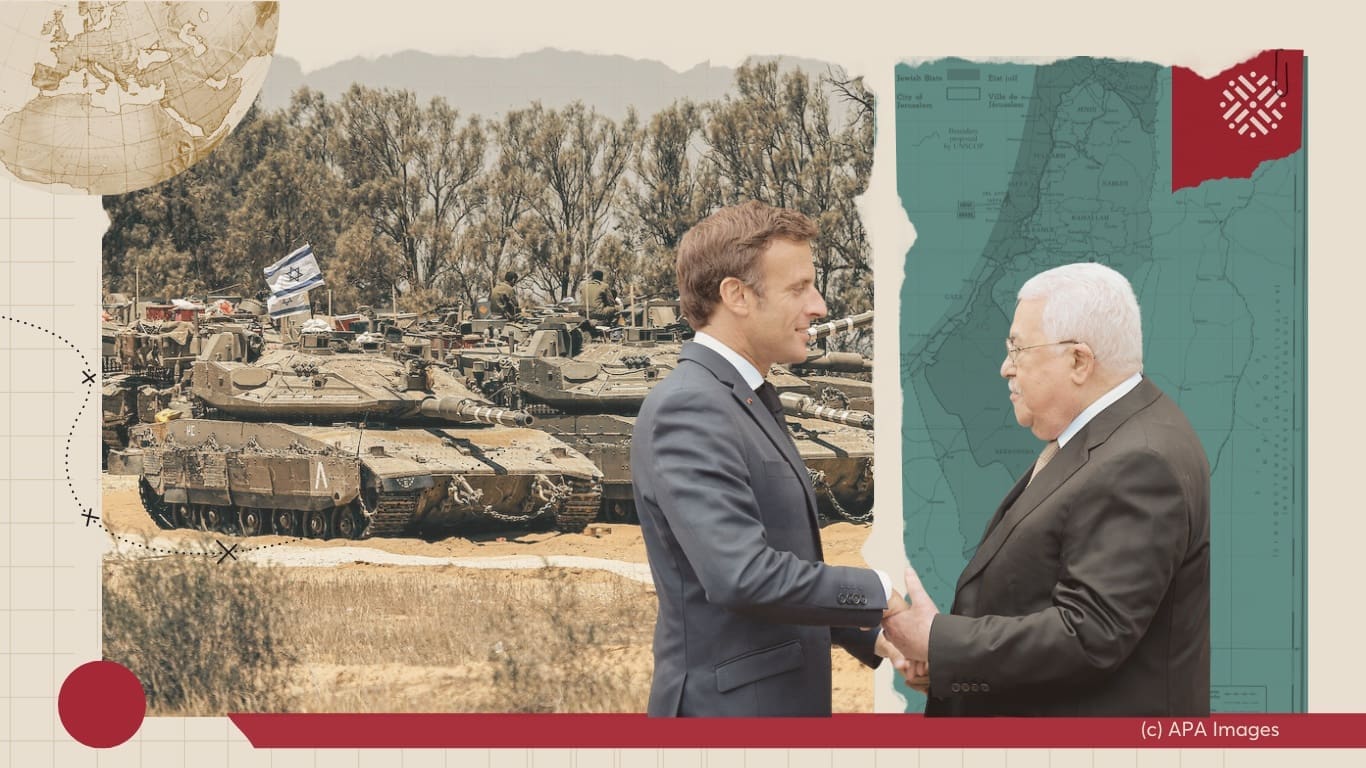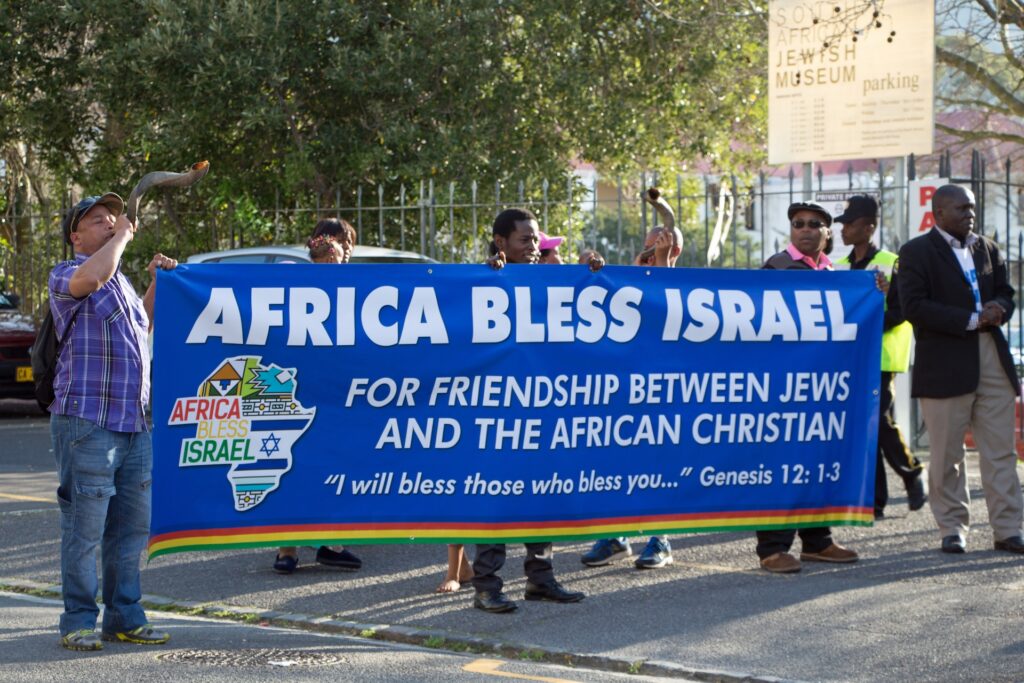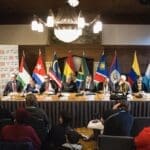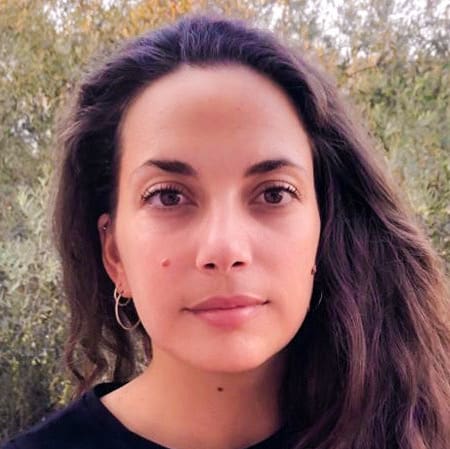
Introduction
Since October 2023, Israel’s assault on Gaza has produced one of the most catastrophic humanitarian crises in recent history—an unfolding genocide enabled by world powers and continuing unabated despite the sweeping global solidarity it has sparked. Alongside relentless bombardment and mass displacement, the Israeli regime is waging a deliberate campaign of starvation. The Integrated Food Security Phase Classification has confirmed that “famine thresholds” have already been crossed in Gaza, with widespread hunger, malnutrition, and disease driving a sharp rise in preventable deaths. These conditions are not incidental; they reflect a coordinated Israeli policy aimed at killing, displacing, and annihilating Palestinians.
In response to this Israeli-manufactured catastrophe, several European states have begun recognizing or signaling their intent to recognize the State of Palestine. Most recently, France announced its intention to recognize a Palestinian state at the UN General Assembly in September. The UK has stated it will follow suit unless Israel abides by a ceasefire and recommits to a two-state solution. The recent wave of symbolic recognitions that began in 2024 now appears to be the only step many European powers are willing to take in the face of genocide, following nearly two years of moral, material, and diplomatic support for the Israeli regime as well as near-total impunity.
This roundtable conversation with Al Shabaka policy analysts Diana Buttu, Inès Abdel Razek, and Al Shabaka’s co-director, Yara Hawari, asks: Why now? What political or strategic interests are driving this wave of recognition? And what does it mean to recognize a Palestinian state, on paper, while leaving intact the structures of occupation, apartheid, and the genocidal regime that sustains them?
Is recognition of a Palestinian state a meaningful step forward?
Diana Buttu
It is essential to place the current wave of recognitions in a historical context. The push for Palestinian state recognition did not begin in 2024 as a response to genocide; it dates back to 2011. Following Israel’s 2008-09 assault on Gaza, the Palestinian Authority (PA) found itself politically empty-handed. With the collapse of the negotiations-based two-state framework and no peace process in sight, President Mahmoud Abbas turned to the international arena.
If, amid a genocide, the highest political ask is 'please recognize us,' how can you later return to demand sanctions or justice? Share on XLacking a viable strategy, Abbas launched the recognition campaign with two goals: to prop up the PA—whose role as a transitional body had long expired—and to project political relevance. Exposed as a security subcontractor for the Israeli regime, the PA was in urgent need of legitimacy. At the same time, the campaign offered European states a way to avoid confronting Israel—a confrontation that would have required measures such as sanctions or embargoes.
This pattern resurfaced in 2024, as Ireland, Spain, Norway, Slovenia, and, more recently, France and the UK, extended recognition in response to the ongoing genocide. The strategy serves both the PA and European states: it props up a discredited authority while offering Western powers a convenient means of avoiding accountability.
The result is political theater. The belief that recognition will spur international action is unfounded. If the world will not intervene to stop a genocide, why would it act merely because one UN member state is occupying another?
Inès Abdel Razek
What we are seeing in the latest wave of European recognitions is not support for Palestinian self-determination; it is a political endorsement of the PA. For example, Norway centered its recognition around the PA and its institutional infrastructure. This reframing undermines Palestinian self-determination and fails to meet even the most basic legal criteria for statehood. After all, the PA exercises no control over borders, airspace, natural resources, or territory—Israel does. Norway’s recognition was therefore extended to a political entity operating under Israeli control, one that lacks both sovereignty and democratic legitimacy.
Worse still, symbolic gestures like recognition are often framed as bold acts of moral courage when, in reality, they serve as diplomatic cover. Even pro-Israel lobbyists have acknowledged that such moves do nothing to change the reality on the ground. Instead, they allow states to appear engaged while sidestepping their legal obligations to impose sanctions on Israel.
All of this aligns with Israel’s broader strategy: destroy, dispossess, and then push Palestinians to negotiate over crumbs under terms dictated by the occupying power. From the Oslo Accords of the 1990s to today’s humanitarian mechanisms in Gaza, the Israeli regime has consistently maneuvered to control the agenda. Symbolic recognition of a Palestinian state serves only to reward that manipulation. The outrage displayed by US and Israeli officials over Palestinian state recognition is, of course, performative.
In this context, genocide in Gaza is met not with consequences but with ceremony. The PA clings to optics, and Western states embrace symbolic gestures, while Palestinians are left with neither justice nor statehood, only a widening gap between lived reality and international performance.
Yara Hawari
We need to be clear about what is actually being recognized when states declare support for the “State of Palestine.” This is not a recognition of sovereignty but a diplomatic fiction. At its core, it codifies a narrative of colonial partition: the fragmentation of historic Palestine into geographic and political enclaves.
This kind of recognition is not just ineffective—it is dangerous. It reinforces a narrow partitionist framework that reduces “Palestine” to the West Bank and Gaza and the Palestinian people to less than half of who we are.
For European states, recognition functions as a distraction from complicity. These declarations come mostly without sanctions, arms embargoes, or any material commitment to dismantle occupation or apartheid. Instead, they operate as symbolic gestures in the legal realm while shielding Israel from accountability for war crimes and systemic violations.
The claim that recognition grants access to international forums and might help level the diplomatic playing field is both naïve and misleading. States are not equal in the global order. The US, with its veto power, ensures that Israel is never held accountable. And as Israel’s chief ally, it guarantees that Palestinians will never negotiate from a position of parity.
And that is precisely the problem: we are not a sovereign state. We are a colonized, besieged, and occupied people facing genocide in Gaza. Any serious political engagement must begin from this reality, not from the illusion of a state that does not exist. Instead of halting genocide and forced starvation—much of it facilitated by the very states offering recognition—we are told to focus on a fantasy of statehood that no one is willing to bring into being. That disconnect speaks volumes.
What does the recent wave of Palestinian state recognitions reveal about how states are approaching their legal responsibilities under international law?
Inès Abdel Razek
Most governments continue to operate within the outdated framework of the so-called Middle East Peace Process. This framing still dominates how Palestine is discussed and shapes nearly every policy move being made today. We saw it, for example, in the two-state conference co-hosted by Saudi Arabia and France at the UN in New York in late July. The entire event was framed around the notion that there are “two parties” in conflict. This framing remains prevalent, as reflected in UN Secretary-General Antonio Guterres’s recent remarks that the only viable solution remains the two-state solution, “with Israel and Palestine living side by side in peace and security.” This language treats the situation as a mutual dispute between equals, eliding the reality of occupation, apartheid, and one-sided aggression.
What we are seeing in the latest wave of European recognitions is not support for Palestinian self-determination; it is a political endorsement of the Palestinian Authority Share on XThere is no mention of colonizer and colonized. No recognition of an aggressor and a people under assault. No acknowledgment of occupation or apartheid. This false equivalence is not just misleading—it is a dangerous political trap.
The peace process paradigm needs to be shattered, and there is already legal clarity on what states should be doing instead. The International Court of Justice (ICJ), in both its 2004 and 2024 advisory opinions, points to a legal framework of accountability that offers an alternative to the two-state framework’s political deadlock.
Indeed, the ICJ’s legal opinions place the onus on the international community to act, not merely to mediate. Yet world powers remain in the comfort zone of so-called neutrality and false symmetry, shielding Israel from consequences and evading accountability. So long as the “both-sides” narrative persists, Israeli impunity will continue to deepen, and the genocide will only escalate.
Diana Buttu
What is especially disturbing is that even this symbolic recognition remains trapped in the logic of bilateral negotiations. It is still rooted in the idea that Palestinians must negotiate every aspect of their freedom, as if liberation must always be conditional, incremental, and mediated by their colonizer. That is the logic we remain stuck with.
This is precisely how Europe, in particular, has tried to absolve itself of deeper responsibility. European governments continue to behave as if they are neutral observers, as though their hands are tied. But they are not neutral. They are third-party actors with binding obligations under international law to recognize the occupation for what it is, not aid its continuation, and work to end it. These are obligations they are choosing to ignore.
Yara Hawari
I would rather see states recognize the genocide than recognize a Palestinian state. Under international law, recognition of genocide carries clear obligations: states must do everything in their power to prevent and to stop it. I am under no illusions that they would fulfill those obligations, but at least the legal framework exists, and the pressure it generates is real.
Focusing instead on the recognition of a Palestinian state conveniently lets states off the hook. It allows them to sidestep their legal responsibilities under the Genocide Convention and international humanitarian law. It creates the appearance of action without the burden of meaningful consequences.
More broadly, there has been a disproportionate amount of energy—even among some allies and advocates—invested in Palestinian state recognition. But if we are to continue engaging with the international legal arena, the focus should be on accountability. Accountability is the only viable path to stopping the horrors unfolding in Gaza and the only way to prevent them from being repeated.
In addition, recognition of a Palestinian state does nothing to deter further violence. It does not carry the legal weight or consequences that come with acknowledging that a genocide is underway—right now—in Gaza.
Is Europe using recognition of a Palestinian state to advance Arab-Israeli normalization?
Yara Hawari
We have recently seen a new narrative emerging: that European recognition of a Palestinian state could serve as a pathway to Saudi normalization with Israel. In this way, recognition is not about Palestinian rights or justice, but rather serves as a bargaining chip in broader regional geopolitics. The idea is simple: the more European states recognize Palestine, the easier it becomes for Saudi Arabia to justify normalizing ties with Israel.
It is a deeply transactional logic and a cheap trade-off. As we have already discussed, recognition is symbolic at best. It offers no guarantees to Palestinians in terms of ending the genocide, dismantling the occupation, or fulfilling their inalienable rights. But for Saudi Crown Prince Mohammed bin Salman, recognition provides convenient political cover for something he has long sought: normalized relations with Israel.
I would rather see states recognize the genocide than recognize a Palestinian state… recognition of genocide carries clear obligations: states must do everything in their power to prevent it and to stop it Share on XThat is what makes this moment so dangerous. Anti-normalization—once a principled regional stance rooted in the understanding that Israel is a settler-colonial regime built on the dispossession of Palestinians—has been almost entirely abandoned at the state level. In its place, a reward system has taken hold: normalize with Israel, and you will receive military, economic, or diplomatic incentives, especially from the US.
The Abraham Accords made this logic explicit. These were not ideological realignments but transactional deals. Despite that, popular sentiment across the region remains strongly pro-Palestinian and anti-normalization. But governments continue to move in the opposite direction.
What we are seeing now is recognition used not as a tool of justice, but as political cover. European recognitions give Arab regimes, particularly Saudi Arabia, the excuse they need to normalize relations with Israel, while Palestinians continue to face genocide, starvation, and occupation.
Diana Buttu
What is striking about normalization is that Israelis, by and large, are indifferent to it. It is not even part of the public conversation anymore. Even during the 2020 normalization deals under the Abraham Accords, it barely made a blip in Israeli public opinion. There was no excitement, no major debate.
After all, these agreements have produced no real people-to-people engagement. Popularly, they have failed. And in terms of benefits to the states that signed them, they have yielded little beyond security contracts and intelligence cooperation, which was probably the main objective from the outset.
In reality, news of potential normalization with Saudi Arabia holds little significance for the Israeli public. It simply does not matter to them. The more the Saudi Crown Prince and European leaders push normalization—now linked to Palestinian state recognition—the more detached it feels from popular realities. Polls show that the majority of Israelis oppose such moves, not out of solidarity with Palestinians, but because normalization offers them nothing. Many Israelis cannot name five Arab countries, let alone express interest in the region. Their cultural and political orientation has long been toward Europe, not the Arab world.
In fact, we are left with a strange paradox. Regional and Western leaders eagerly promote recognition and normalization, as if these moves will alter something fundamental, yet on the ground—for both Palestinians and Israelis—they mean very little. In particular, for Prime Minister Benjamin Netanyahu and his base, they are irrelevant.
And that brings us back to the core point: recognition of a Palestinian state is not about real solutions or meaningful change. It is about optics, a performative action that signals urgency while doing next to nothing to stop a genocide.
Inès Abdel Razek
From the perspective of Arab states, particularly those flirting with normalization, it is becoming increasingly difficult to justify inaction. Israel’s colonial expansion is not confined to Palestine. Its occupation forces are intensifying military campaigns in Lebanon—occupying parts of the south—while continuing operations and entrenchment in Syria. The annexation of the Golan Heights has been steadily normalized, with the boundaries of impunity pushed ever further. The situation has become increasingly uncomfortable for Arab regimes and disruptive to regional dynamics, though clearly not enough to prompt meaningful consequences.
We are far removed from the kind of responses seen during the October War of 1973, when Egypt and Syria launched a coordinated military campaign to reclaim occupied territories, and Arab regimes imposed an oil embargo on the US and its allies in protest of their support for Israel. That moment of collective pressure now feels like a distant memory. Today, there is little appetite for confrontation—only symbolic gestures and evasive diplomacy.
All of this unfolds as Israel continues its scorched-earth strategy, destroying everything in its path, annexing land, and pushing Palestinians to the brink of survival. In this context, even the smallest step, such as allowing a single aid truck into Gaza, is framed as a breakthrough and a benevolent gesture that supposedly signals a brighter path forward. Arab regimes have bought into this logic.
Just as past frameworks like “economic peace” and “Gaza reconstruction” enabled the Israeli regime to carry out its military campaigns, knowing that international donors would fund the aftermath, today the delivery of basic necessities such as flour and fuel is passed off as a strategic intervention.
Why does the two-state solution remain the default framework for Palestinian self-determination—and what would it take to move beyond it?
Yara Hawari
Part of the answer lies in the fact that the leadership advancing this strategy—the two-state framework, recognition, and partition—is not one that operates with an elected or popular mandate. This leadership holds no real legitimacy among Palestinians and does not represent us in any meaningful democratic sense. That is why it is so important—especially in this moment—for us to ask: What does sovereignty mean beyond the logic of partition and colonial fragmentation? What does self-determination look like if we reject the confines of “feasibility” that have been imposed on us for decades?
We are told, again and again, that Palestinian statehood and international recognition are the only viable paths forward. Yet one remains perpetually out of reach and the other amounts to little more than diplomatic lip service. These frameworks do not liberate us; they contain us, diminish us, and recast our struggle in terms acceptable to those invested in maintaining the status quo, not achieving justice.
Of course, it is difficult even to have these conversations amid a genocide. In many ways, it feels like a privilege to be debating political horizons while people in Gaza are bombed, starved, and exterminated in real time. But I also think that is precisely what makes the debates even more urgent.
As Palestinians, it is our responsibility to ask these questions and to pose them directly to our so-called leadership. Our sovereignty cannot, and must not, be defined by frameworks built on our fragmentation. We must imagine something more—because what is being offered is not liberation. It is containment.
Inès Abdel Razek
We also need to recognize that many Western governments continue to treat Israel as a good-faith actor within the two-state framework, repeatedly extending the benefit of the doubt despite overwhelming evidence to the contrary.
Indeed, Israel continues to be treated as a credible and authoritative actor, despite the fact that deception has long been a core feature of its diplomatic and military strategy. Whether covering up the assassination of Shireen Abu Akleh, justifying the bombing of hospitals, or attacking UNRWA’s credibility, the Israeli regime has consistently relied on false narratives to shield itself from accountability. This pattern is both systematic and deliberate.
Still, many Western states accept these narratives at face value. They often receive official Israeli documents in Hebrew, a language few in their foreign ministries can read, yet these briefings are met with uncritical acceptance and presumed to be credible. This is not merely political bias; it reflects a deeper, often racialized worldview: Israel is perceived as modern, rational, and credible. Palestinians, by contrast, are viewed as irrational, suspect, or expendable.
Unless this logic is fundamentally dismantled, nothing will change. As long as the Israeli regime is seen as acting in good faith, there will be no serious accountability. And until the international community confronts Israel’s pattern of deception and colonial expansion, justice for Palestinians—and recognition of their right to exist and resist—will remain out of reach.
Diana Buttu
I remember during the post-Oslo negotiations, we would often ask: Why are we limiting our vision of liberation to a state on just 22% of our historic homeland—a state that excludes the majority of Palestinians and offers no real pathway for return?
And the response we were given—then and now—is that the settlements are a cancer. That was the word: cancer. The logic followed that to stop this cancer, we needed a process—any process—that could halt settlement expansion, slow colonization, and preserve the possibility of a state.
This logic now permeates today’s conversation around recognition. Diplomats insist that recognizing a Palestinian state is urgent because it might help stop the cancer. Recognition, they argue, could halt annexation, draw a political red line, or at least freeze settlement expansion.
But we know this is not true. Recognition has not stopped the cancer. It is a one-off symbolic gesture, one that expends political capital without altering the balance of power. In the end, Israel walks away with greater legitimacy, not less.
The Palestinian leadership could have chosen a different path. It could have mounted a serious, sustained campaign to hold the Israeli regime accountable by pushing for sanctions, arms embargoes, and legal mechanisms.
Yes, the PA lacks any electoral legitimacy, but that does not mean it lacks capacity. The PA leadership could have fought for survival rather than surrender. Instead, they have opted to sideline—and at times even sabotage—the pursuit of justice.
That is the heart of the problem: if, amid a genocide, the highest political ask is “please recognize us,” how can you later return to demand sanctions or justice? By accepting symbolic recognition as sufficient, you undermine the credibility of any future calls for real accountability.















